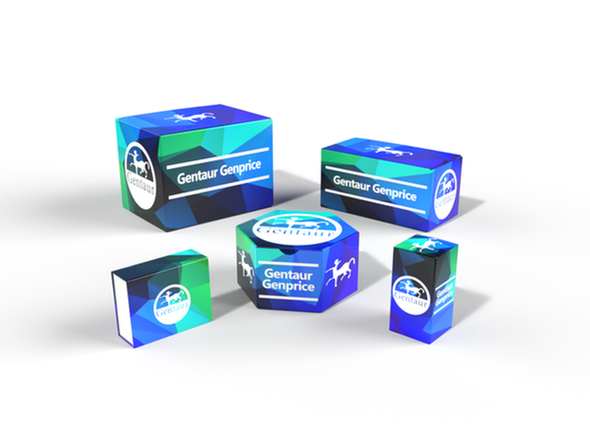Description
KCNN3 Antibody | 15-323 | Gentaur UK, US & Europe Distribution
Host: Rabbit
Reactivity: Human, Mouse, Rat
Homology: N/A
Immunogen: Recombinant fusion protein containing a sequence corresponding to amino acids 237-426 of human KCNN3 (NP_740752.1) .
Research Area: Neuroscience, Signal Transduction
Tested Application: WB, IF
Application: WB: 1:500 - 1:1000
IF: 1:50 - 1:100
Specificiy: N/A
Positive Control 1: NCI-H460
Positive Control 2: Raji
Positive Control 3: 293T
Positive Control 4: Mouse heart
Positive Control 5: Mouse liver
Positive Control 6: Mouse skeletal muscle
Molecular Weight: Observed: 50-85kDa
Validation: N/A
Isoform: N/A
Purification: Affinity purification
Clonality: Polyclonal
Clone: N/A
Isotype: IgG
Conjugate: Unconjugated
Physical State: Liquid
Buffer: PBS with 0.02% sodium azide, 50% glycerol, pH7.3.
Concentration: N/A
Storage Condition: Store at -20˚C. Avoid freeze / thaw cycles.
Alternate Name: KCNN3, SK3, hSK3, SKCA3, KCa2.3
User Note: Optimal dilutions for each application to be determined by the researcher.
BACKGROUND: Action potentials in vertebrate neurons are followed by an afterhyperpolarization (AHP) that may persist for several seconds and may have profound consequences for the firing pattern of the neuron. Each component of the AHP is kinetically distinct and is mediated by different calcium-activated potassium channels. This gene belongs to the KCNN family of potassium channels. It encodes an integral membrane protein that forms a voltage-independent calcium-activated channel, which is thought to regulate neuronal excitability by contributing to the slow component of synaptic AHP. This gene contains two CAG repeat regions in the coding sequence. It was thought that expansion of one or both of these repeats could lead to an increased susceptibility to schizophrenia or bipolar disorder, but studies indicate that this is probably not the case. Alternatively spliced transcript variants encoding different isoforms have been found for this gene.










